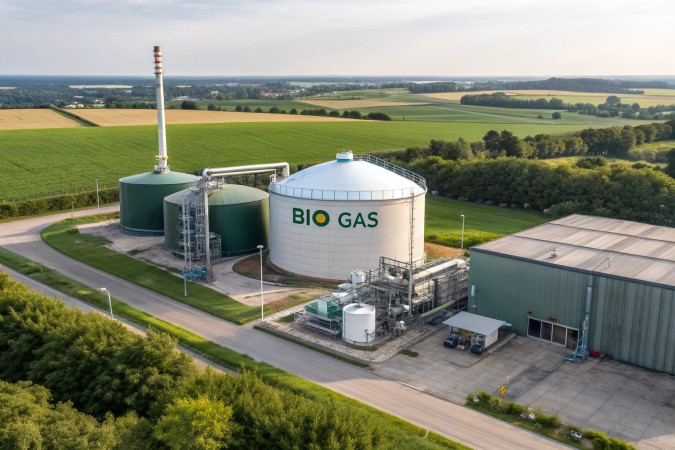
Follow India Renewable Energy News on WhatsApp for exclusive updates on clean energy news and insights
Compressed Biogas Plants Could Cut Delhi’s Winter Pollution by 30%, Says Nomura Study
Feb 09, 2025
A recent study by the Nomura Research Institute has found that establishing compressed biogas (CBG) plants, which utilize paddy straw as a key feedstock, could reduce winter pollution in Delhi by up to 30%. The study also revealed that one CBG plant could eliminate emissions equivalent to the output of 1.5 lakh electric cars, providing a sustainable solution to the city's air pollution problems.
The study highlights that vehicles contribute 20-30% of Delhi’s particulate matter (PM) emissions, with older vehicles being the primary polluters. However, during winters, pollution levels from vehicles and biomass burning (such as paddy straw stubble burning) significantly rise. While vehicles contribute 20% to the pollution in summer, this figure jumps to 30% in the winter, while stubble burning contributes up to 23% during peak seasons.
Compressed biogas (CBG) is a renewable biofuel produced by anaerobically digesting organic matter such as paddy straw, press mud, and municipal solid waste. CBG can be used in CNG-run vehicles, making it an eco-friendly alternative to fossil fuel-based CNG. India, with its abundant supply of agricultural residues, is well-positioned to produce large-scale CBG, particularly from paddy straw, a promising feedstock with high yields and large-scale availability.
The study suggests a multi-pronged approach to support the growth of CBG plants, including the introduction of penalties for non-compliance with CBG blending obligations, state-level policies offering subsidies and tax exemptions, and encouraging corporate CSR spending in the bioenergy sector.
The Union Petroleum Ministry has set mandatory CBG blending targets starting from 2025-26, with targets gradually increasing through to 2029. However, the policy currently lacks penalties for non-compliance, which the study recommends addressing to ensure the success of CBG in tackling Delhi’s air pollution crisis.